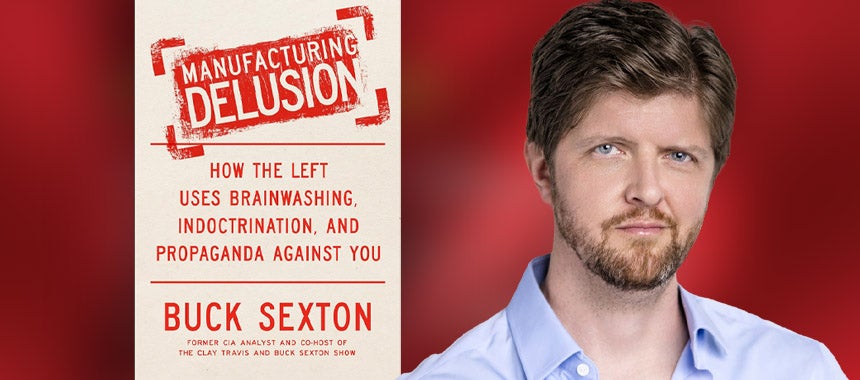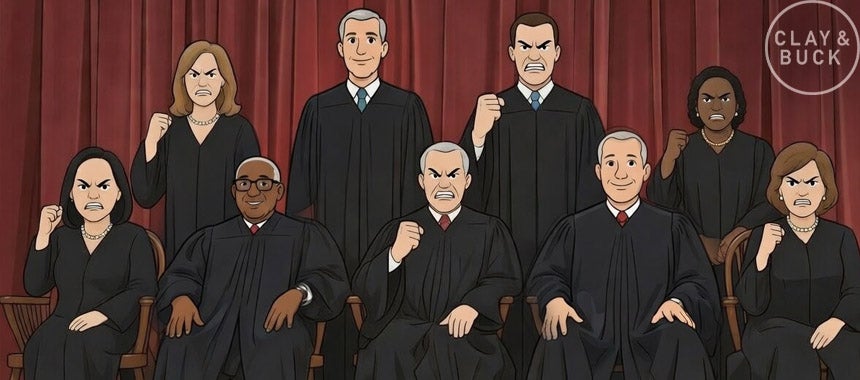Questions Surround Police Response to the Uvalde Shooting
26 May 2022
BUCK: The single biggest conversation the whole country right now is of course the continued discussion, the grieving, the shock that we all feel in the aftermath of the shooting in Uvalde, Texas. But right now the component of this as we’re trying to pull all the pieces together, pieces of our souls and then the pieces of this story so we can understand what happened and take necessary actions going forward to prevent this kind of thing to the greatest degree possible.
The law enforcement response to this — and I want to be very clear. You know I’m very supportive of law enforcement. I have worked myself in law enforcement. I have career law enforcement in my family. The law enforcement response is drawing a lot of questions right now.
Clay, here’s what we know, as of basically the last 12 to 18 hours based on the press conferences. The shooter was confronted by an armed school resource officer. We don’t know what “confrontation” means and we’ll get into what that possibility is. Made his way into the school, got past the armed resource officer, barricaded himself in a classroom, went on a mass murder spree of children and, of course, the two adults as well in this just gut-punch, horrific situation for the whole country.
And law enforcement was outside forming a perimeter for at least an hour, some are saying an hour and a half. And now there’s video of parents, Clay, begging law enforcement to do something. You have an active shooter in a school, and you have parents crying and some of the cops have Tasers ready in case they have to tase parents. I know it’s for their own safety, but to stop them from rushing into the school. They are begging cops to run into the building and we’re told that they couldn’t get a key to get into the classroom?
If this is what happened, it is a failure and we have to look at this and be honest about the law enforcement response.
CLAY: Yeah. Buck, big picture. It’s hard to discuss ways to make schools safer if you don’t understand the facts of what happened in this particular school shooting. And so I have so many questions. And I’ll run through several of them right now. And we need answers. I mean, it’s now been, what, several days that there could have been an explanation for exactly what went on.
First of all, the confrontation statement. What does that consist of? You have an armed school security official. They say that he confronted this shooter who was trying to get into the school. What does a confrontation mean? Did he approach him? Was the gun hidden? Was there some way that he was not aware of this being an armed individual? What occurred that allowed this individual into the school in the first place?
 Second part of this. How did this individual, this murderer, get into an individual classroom? Some of the details that we know, Buck. Evidently he had locked himself into this classroom, and there had to be a master key to allow these officers to be able to get into the classroom. Well, how did he get into this individual classroom in the first place? Was he allowed in? Did someone open the door for him? Did he talk his way into the school based on prior relationships with people involved in the school?
Second part of this. How did this individual, this murderer, get into an individual classroom? Some of the details that we know, Buck. Evidently he had locked himself into this classroom, and there had to be a master key to allow these officers to be able to get into the classroom. Well, how did he get into this individual classroom in the first place? Was he allowed in? Did someone open the door for him? Did he talk his way into the school based on prior relationships with people involved in the school?
And let me give you an example for why I’m breaking it down this way. I think about this every day ’cause I take my kids to and from school, and I talked about this on the day of the shooting. We have an armed security officer inside of our local elementary school. There’s only one way in, through the front door. You have to show security. They buzz you in and out.
I don’t know all the protocols that are in place in this Uvalde school, but until we know all these protocols and we know the answers to these questions and then, Buck, the thing that is chilling to think about is, from parents perspective, if you can hear this man firing his weapon inside of the classroom, it eliminates the argument that this is some sort of a hostage situation.
You have to presume that he is shooting children when those gunshots are going off over and over and over again. How is the immediate response tactically not to charge that classroom? Were there windows in this classroom? Was there any way to shoot out those windows to go in through them?
I mean, Buck, these are all real questions that the state of Texas by now needs to start to answer. There are a lot of these videos of parents saying, “Hey, we’ll charge that school ourselves,” and you can imagine, Buck, you don’t have kids but I know a lot of people out there listening to us do and if you knew that there was an armed killer in a classroom at the school that your kids go to, there are a lot of parents that would show up with guns and be willing to charge that school themselves.
Why were these police officers not doing it?
BUCK: We have to look at — and we said we would have — we would have the adult conversation on our side.
CLAY: Yes.
BUCK: Put aside all the, “He bought the guns legally,” background checks would have done absolutely nothing.
CLAY: There’s nothing I’ve seen yet that could have stopped this from happening from a legal perspective.
BUCK: The gun control stuff is emotional impulse from unstable libs running around freaking out like Beto O’Rourke screaming at people, wouldn’t have done a thing, not gonna change anything. That’s just political attacks against the other side. Okay, now we talk security on our side.
CLAY: Yes.
BUCK: ‘Cause we will have this conversation on the right. We discuss it right away.
 It seems that this school did have security procedures in place that conservatives often talk about. Armed resource officer. Automatic locks on the doors. Limited points of entry. Those clearly didn’t —
It seems that this school did have security procedures in place that conservatives often talk about. Armed resource officer. Automatic locks on the doors. Limited points of entry. Those clearly didn’t —
CLAY: They failed in some way.
BUCK: — stop the situation. There’s the possibility that as we look at this now, in this case, some of that might have actually specifically, the limitations for entry and automatic locks might have made this worse.
Because the police are claiming they couldn’t get access to the classroom. I mean, think about this. That must be a pretty serious door with a pretty heavy-duty lock on it. You would think — and now I know this isn’t a big city where they have, you know, lots of tactical teams, you know, emergency teams like they have in New York and Los Angeles, Chicago. But they did have over a hundred officers on the scene.
Saying that we can’t get the key to get into the door, which is what the official — I shouldn’t — I’m sorry. Not official. That has been told to the press by law enforcement but not officially yet. But assuming that that is true, that is a completely unacceptable circumstance from a security review point of view.
I mean, there’s just no way that we can say there’s an active shooter situation, we have a hundred cops gathered. Thank God the Border Patrol BORTAC team, which is essentially a SWAT team, it’s basically border SWAT, was there, and they went in, they got in the stack, they had a guy with a ballistic shield. You know, at some point you say, though, how could they sit outside?
It reminds me of the Pulse nightclub shooting where there was a lot of after-action discussed this, too, Clay, the shooter Omar Mateen in that case, I think he killed 40 people — I’m doing this from memory — I think was about 40 people he murdered in that nightclub. He was going around shooting people. They were hearing the gunshots.
There were tactical teams on site within minutes. They set up a perimeter and they said they were scared he might have planted a bomb. While they were scared he might have planted a bomb, he was walking around executing people.
CLAY: We saw the same thing happen in Parkland to my recollection, which is the shooter at Parkland there were police on the scene that did not confront this shooter.
BUCK: That’s right.
 CLAY: And there’s been a massive investigation into the police response to that shooting. So look, I mean, this is why we need the details.
CLAY: And there’s been a massive investigation into the police response to that shooting. So look, I mean, this is why we need the details.
It’s possible, I hate to say it, it’s possible somebody didn’t know where the master key was, right, like you’re panicked, somebody doesn’t know where they keep the master key, but you would think — in terms of being able to access that classroom that evidently the shooter was locked in. But you would think, Buck, there are windows that would have provided an entryway point — and again, I just come back to, when you are in a school and there is a crazy person with a gun that you can hear firing that gun.
BUCK: He’s in there murdering children. We all know what he’s doing. He doesn’t have a list of demands to release some political prisoner somewhere else. This guy is trying to kill as many people as possible. Every minute wasted of response time gives him greater opportunity to murder more children.
CLAY: Yes.
BUCK: I mean, look. Honestly it was haunting. You heard and saw those videos, right, Clay? I mean the parents on the perimeter begging cops.
CLAY: I can’t imagine being in that situation.
BUCK: Honestly, it was so upsetting in watching it this morning. What do you tell those parents now? What a day tell them?
CLAY: That’s why the state of Texas owes a full accounting right now of what went into — because look. Until you know all the facts behind this shooting, all of the talk about, oh, we have to do X or we have to do Y, it’s possible this was a cataclysmic failure on every level.
You have a school security guard confronting this guy. What does that entail? How did this guy get access to a school? Because, Buck, if all of the police could not get into this individual classroom, how did this shooter get into the individual classroom?
BUCK: I mean, I think there’s the possibility that he may have — we don’t know. Now we’re analyzing and postulating.
CLAY: This is the problem when the facts aren’t all out, you have to try to make logical leaps because they haven’t given us the facts.
BUCK: I think it’s possible that he might have talked his way past the school resource officer. Perhaps even, you know, convinced somebody on the inside. I’ve seen conflicting reporting — this is the problem. We don’t have all the details. But we I believe had some tie to the school either through his mother or his grandmother. There were some — maybe he had attended in the past. I have to check on those facts.
But even if he did, he might have said, could have lied, “My mom is a teacher here,” something like, because all of the security procedures that were in place — and they did — like we said, armed resource officer, automatic lockdown policy, very rapid law enforcement response was completely insufficient here, completely insufficient.
CLAY: And for this school resource officer who is armed — he’s not dead, right? Your number one job when you are in the school is to protect the school. That’s why you’re there, right? We need to know what that confrontation that he had or she had actually entailed, right? They keep saying “he confronted” this shooter —
 BUCK: If he drew his firearm and used it we would know that by now; so I would assume that —
BUCK: If he drew his firearm and used it we would know that by now; so I would assume that —
CLAY: Confronted is “Hey, what are you doing?”
He’s like, yeah, “I’m going in to kill kids.”
Okay, well, hey, like, what are you doing as the school officer there that allows this guy in? I mean, again, these are the kinds of details that we need to know because if there were protocols in place to respond to a school shooting, it’s possible that they all failed. And there may have been three or four different failures in terms of what occurred to allow this to happen.
BUCK: It’s remarkable to even think about the possibility that there were law enforcement trained there, ballistic vests, ballistic shield. Now, we don’t know how quickly the BORTAC team got there. And the BORTAC team did do its job and did end the threat. So credit to them for rushing in there, taking rounds, and doing what they do, but it was in a long time waiting.
CLAY: And look. The idea also of setting up a perimeter is probably predicated on trying to get the other kids inside of the school out safely. But when you know that there are gunshots going on in a classroom, I don’t understand how the number one response across the board — we know what happens in school shootings isn’t to charge the classroom immediately.
BUCK: I just feel like they set up this perimeter. They could say anybody here a veteran with tactical experience, you know, hand three or four of them long guns, it would have been a better outcome than waiting an hour, which is what happened.
CLAY: At a minimum you distract the shooter so that he has to worry about being shot at as opposed to being able to focus on the people in the classroom, right, if you’re attempting to go in after him.
 BUCK: By the way, if there’s anyone in this audience who has SWAT experience, real tactical experience on law enforcement or on the military side, basically if you’ve ever trained and been in a stack and done entry and egress from rooms in a close-quarters battle situation, let us know what we’re missing here; let us know what should have happened.
BUCK: By the way, if there’s anyone in this audience who has SWAT experience, real tactical experience on law enforcement or on the military side, basically if you’ve ever trained and been in a stack and done entry and egress from rooms in a close-quarters battle situation, let us know what we’re missing here; let us know what should have happened.
Maybe there are some elements of this that we need to bring into the discussion. So 800-282-2882, because we have a huge law enforcement audience and a huge military audience here. A lot of people listening to this know more about this and I’m always honest, than the hosts do. So if you’ve got something to add to this conversation, by all means.
Look. If you haven’t heard those videos, I’m not recommending you watch them because —
CLAY: It’s tough.
BUCK: — it’s tough to watch. But that’s why we’re just in shock this morning. I mean, another round of shock after the initial 24 hours of learning what happened here.
Recent Stories
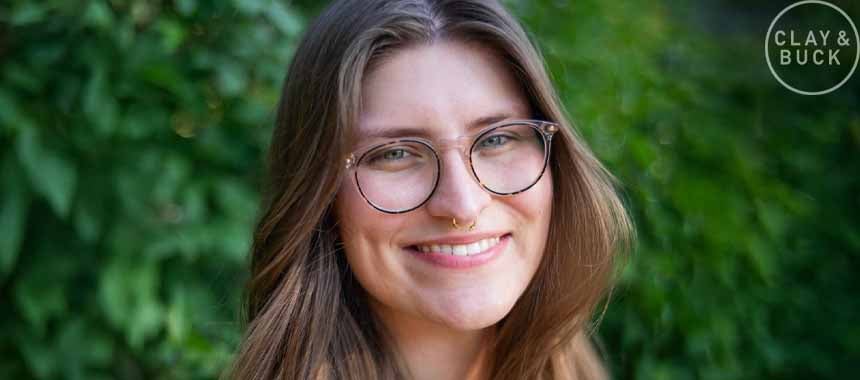
Soren Aldaco: A Detransitioner's Story
One of our most powerful interviews in recent memory. Don't miss it.
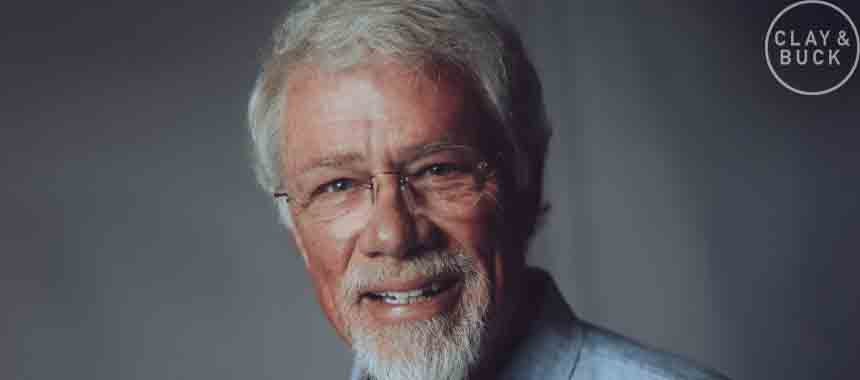
Jeff Hays, Director of MAHA Uncensored, a Hard Look at the Business of American Medicine
An inside look at what drives the American medical system.
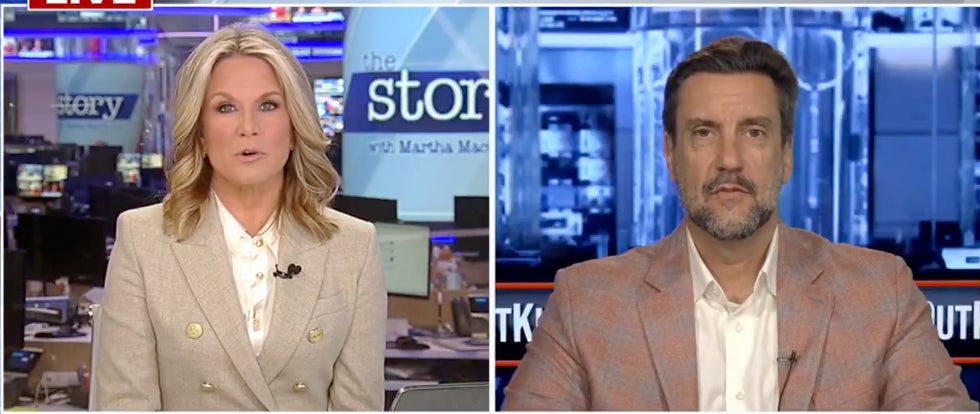
Clay Praises Alysa Liu's Gold Medal for the USA
Miss Clay on The Story with Martha MacCallum? Watch it here.




